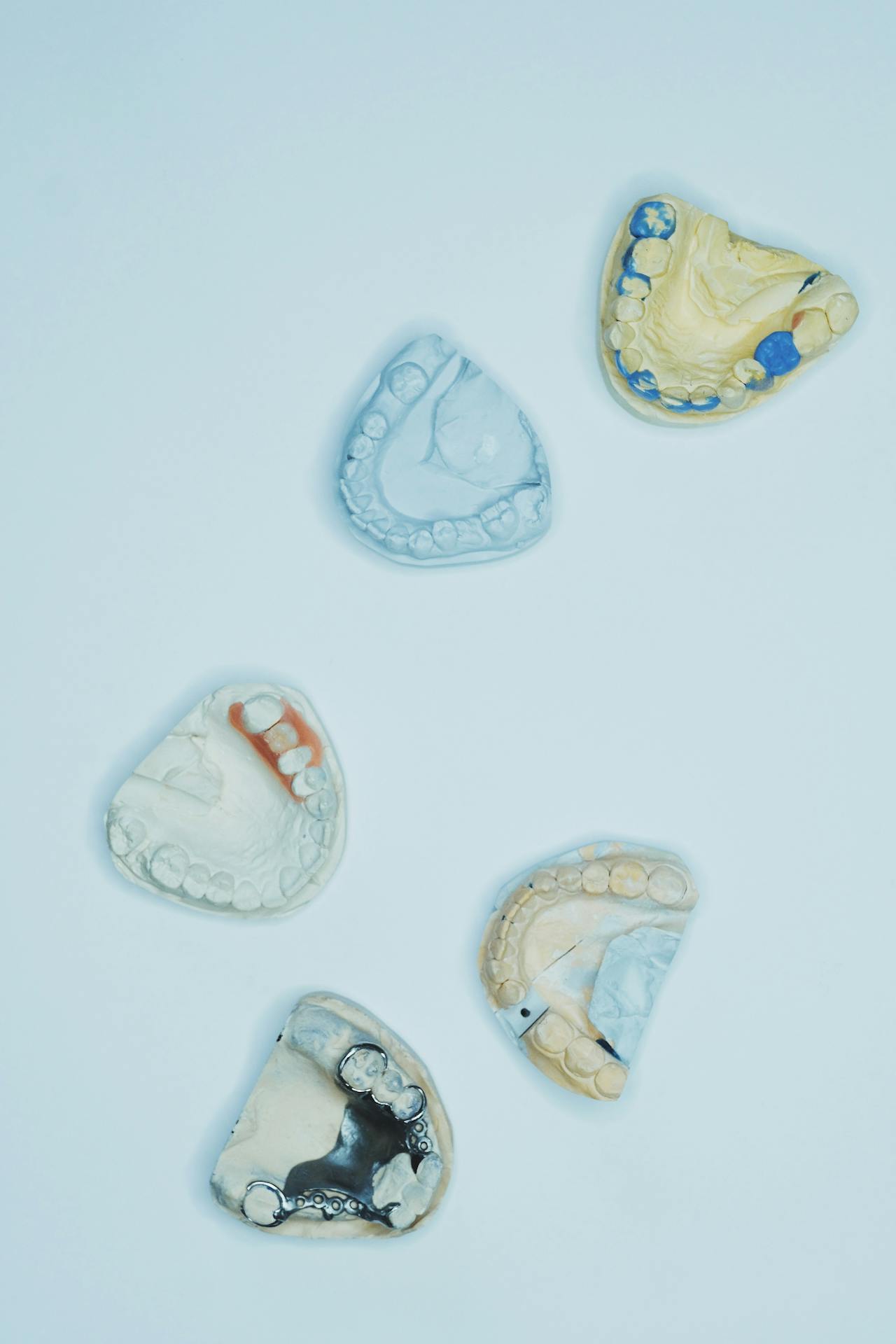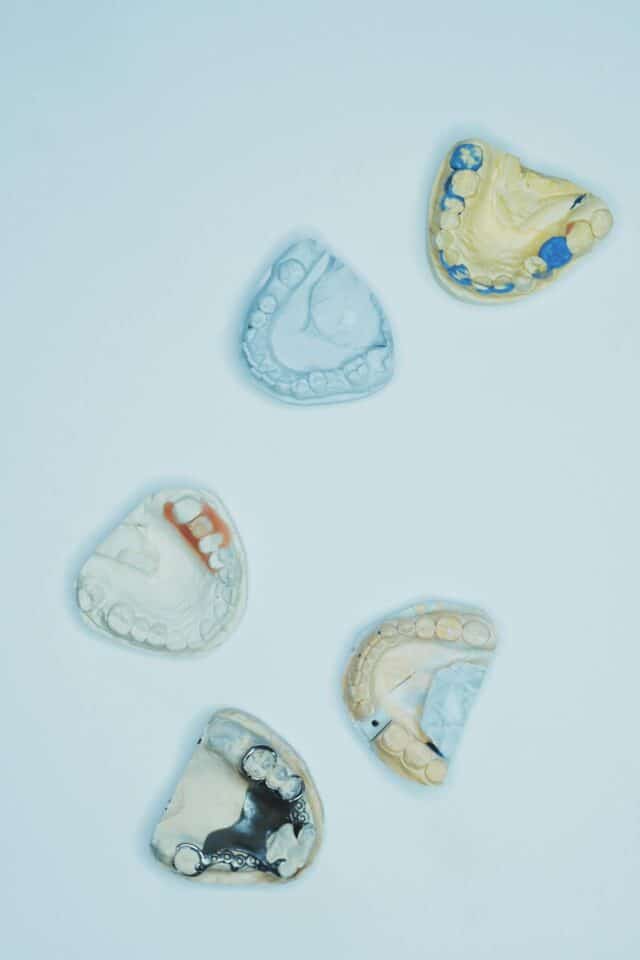Dental implants have revolutionized restorative dentistry by offering a durable and aesthetically pleasing solution for missing teeth. The implant crown, which is the visible part of the restoration, is a critical component of the prosthetic.
Choosing the correct type of crown is crucial because it directly affects the functionality, durability and appearance of your tooth restoration. A well-suited implant not only enhances your oral health but also ensures long-lasting satisfaction with your smile.
In this blog, we’ll explore the different types of dental implant crowns. Whether you’re actively considering dental implants or simply looking to expand your understanding of this transformative dental solution, this guide will provide the knowledge you need to make informed decisions.

What Is an Implant Crown?
An implant crown is a custom-made dental prosthetic that attaches to an implant post or abutment anchored in the jawbone. It functions like a natural tooth and will restore the ability to chew, speak and smile confidently. Implant crowns are made to blend seamlessly with surrounding teeth.
Types of Implant Crowns Based on Material
Implant crowns are crafted from different materials, each offering unique benefits in strength, aesthetics and affordability. Below are the most common materials used for implant crowns:
Porcelain-Fused-to-Metal (PFM) Crowns
Porcelain-fused-to-metal (PFM) crowns are popular in restorative dentistry due to their strength and aesthetic appeal. These feature a durable metal base that provides excellent structural support, topped with a porcelain overlay that mimics the appearance of natural teeth.
PFM crowns are versatile and can be used for front and back teeth. However, one drawback is that the metal base may occasionally become visible near the gum line over time, especially if gum recession occurs.
Zirconia Crowns
Zirconia crowns are made entirely from zirconium dioxide, a cutting-edge ceramic material known for its exceptional strength and biocompatibility. These crowns are nearly indestructible and highly resistant to chipping. They are an excellent choice for patients who need durable restorations, particularly for molars and other teeth subjected to significant chewing forces.
Zirconia also offers a natural-looking translucency that closely resembles tooth enamel. However, it is more expensive than other alternatives. Still, its combination of strength and aesthetics makes it a premium option in dental restoration.
All-Ceramic or All-Porcelain Crowns
All-ceramic or all-porcelain crowns are highly regarded for their lifelike appearance and natural translucency. They are the top choice for restoring visible teeth, such as incisors and canines. These crowns are metal-free, which eliminates the risk of a dark line at the gum margin.
While they excel visually, all-ceramic crowns are not as strong as other options. Due to this, they are not suitable for teeth subjected to heavy biting forces, such as molars.
Metal Crowns
Metal crowns are a robust and long-lasting option for dental restorations. They are made from alloys such as gold, palladium or base metals like nickel or chromium. These crowns are highly wear-resistant and withstand the strongest chewing and biting forces.
However, their metallic appearance limits their use of non-visible teeth. While less commonly chosen for aesthetic reasons, their durability makes them dependable for functional restorations.
Hybrid Composite Crowns
Hybrid composite crowns are constructed by combining composite resin with a metal or zirconia core. These crowns are often used for temporary or less permanent solutions, but they can also be affordable for patients seeking functional and customizable crowns.
Composite resin is lightweight and can be color-matched to natural teeth, though less durable than porcelain or zirconia. Over time, composite crowns may become prone to discoloration or wear, especially with heavy use.
Types of Implant Crowns Based on Design
In addition to the materials, implant crowns come in different designs tailored to specific dental needs and implant systems.
Screw-Retained Crowns
Screw-retained crowns are a practical and efficient choice for dental restorations. They are designed to attach directly to the implant via a small screw. This type of crown allows for easy removal by a dentist, making it ideal for patients needing maintenance, repairs or adjustments over time.
Although they are highly functional, screw-retained crowns do require a small access hole for the screw, which is typically filled with composite material to blend with the tooth’s appearance. This makes them slightly less aesthetic in highly visible areas.
Cement-Retained Crowns
Cement-retained crowns are a popular choice for their appearance. They are bonded to the abutment using dental cement, eliminating the need for visible screw holes. This makes them especially appealing for restorations in the front of the mouth.
However, one downside is that the crown cannot be easily removed, which can complicate repairs or maintenance if issues arise. Additionally, any excess cement left behind during placement must be meticulously cleaned to prevent gum irritation or infection.
Custom Abutment Crowns
Custom abutments are tailored to the patient’s dental anatomy to guarantee an optimal fit. This type of implant crown is often chosen for complex cases or when a flawless aesthetic result is desired.
While they may require a longer fabrication process and come at a higher cost, their ability to provide a secure and visually pleasing restoration makes them a top-tier choice.
How to Choose the Right Implant Crown for You
Choosing the right implant crown depends on various factors, including:
- Aesthetic Needs: For highly visible teeth, materials like all-ceramic or zirconia are preferable for their natural appearance.
- Functionality: For molars or teeth subjected to heavy chewing, durable materials like zirconia or metal are ideal.
- Budget: Hybrid composites or PFM crowns offer a balance between cost and performance.
- Allergies or Sensitivities: Metal-free options like zirconia or ceramic are best for individuals with allergies.
- Dental Anatomy: The position and alignment of the implant can influence whether a screw-retained or cement-retained design is more appropriate.
Your dentist will assess your specific requirements, dental health and cosmetic goals to recommend the most suitable implant crown.

Customized Solutions for Your Dream Smile at Archpoint Implant Dentistry
Choosing the right implant crown is critical in a successful dental restoration. At Archpoint Implant Dentistry, we understand that every patient’s needs are unique and are dedicated to helping you find the perfect solution. Our team specializes in advanced dental implant procedures and offers a wide range of high-quality crown options tailored to your preferences.
Contact Archpoint Implant Dentistry today to schedule your consultation.








